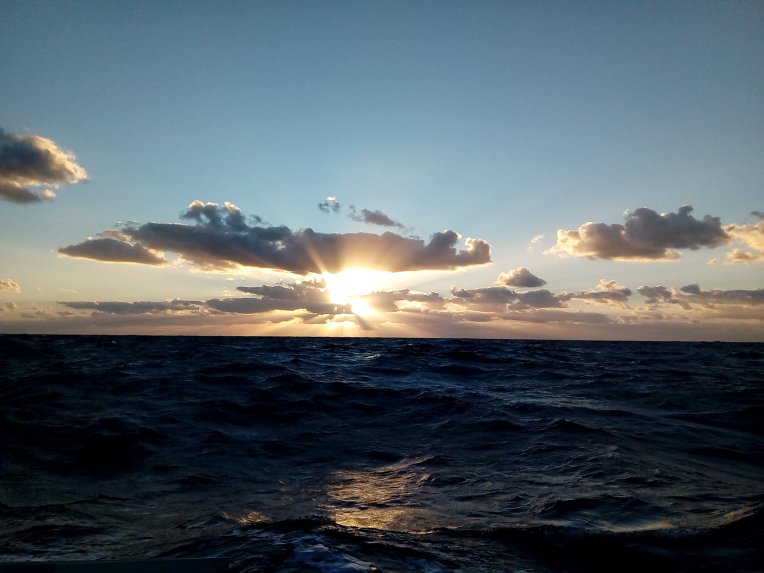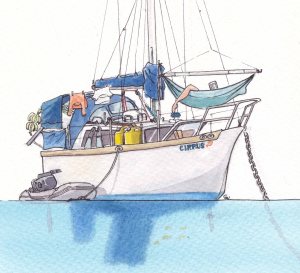Hi everybody,
We haven´t been doing our homework lately. It proved very difficult to find both time and good internet connection in the same time. But we hope that this absence of news on the blog will not have made you forget its existence. Anyway, we now have free weekends and promised ourselves to catch up. Here we go;
Two days after arriving in St Lucia we sailed away on board a swan 80, Berenice, to be delivered in Antigua. We had been told by a friend that they needed crew and could not believe our luck when the skipper accepted to take us on board. Being on this sort of boat was for us completely new. Berenice was the third biggest yacht in the marina with its 25 m of length and we hallucinated on the size of the galley and winches… The boat had sailed the ARC with an Italian crew and the skipper had one week to get his boat back to its best shine before having to meet the owner in Isla Margarita for two weeks of charter. So we met Alfonso the skipper, and Paula the hostess. They both work in – what I know pronounce in each conversation with a new person – “yachting industry”. In other words, serving and cleaning luxury floating hotel, as we found out later.
In Antigua we got stunned by the atmosphere and the contrast; multi-millionaires toys lying in the harbor filled up of Americans and Europeans polishing the day and drinking the night on one side. On the other side the locals whose business is mostly centered on getting these palaces all they need to fulfill the wishes and caprices of their owners. All this little world seems always happy, throwing jokes at each other while hanging from the side of a motor yacht to polish the topsides or dancing the night away drinking rum punch.
Having arrived there after one night of sail our objective was to find work at all cost. We did not really have a precise idea of what sort of work could be found here in the yachting industry. Chatting with crew members we understood that working for charter companies or sailing school paid less and was harder to get than day working on luxury yachts and hopefully, find a fixed position. Indeed sailing school such as Ondeck or SunSail, which we had hoped to work for (Gaspar imagining to renew his Glenans´experience but this time under the sun), ask from their employees to have all the RYA professional titles (which cost a lot and that you can pass in their school…) and anyway prefer to employ locals.
Alfonso offered Gaspar a couple days of day work while trying to sort out his crew for the charter with his owner. Paula was coming off the boat and he needed crew to deliver the boat to Venezuela as well as a hostess. After a couple days Rocio put forward that she could be stewardess (cook) although she did not have experience. So finally we ended up both being engaged for 3 weeks to one month of work on board Berenice as deckhand and stewardess. These days were extremely stressful as everything had to be perfect despite our lack of experience and the lack of time.
We sailed Berenice to Isla Margarita in Venezuela. This took us three days. The owner arrived, and his guests two days later. Altogether we would have to clean, cook and serve four adults, three kids and us three…
The work started at 7 and finished at 23 at the best. It consisted in waking up, dry the deck, prepare the breakfast and set the table, serve the breakfast and meanwhile clean the rooms and bathrooms, collect the laundry and make the beds. As soon as this was finished either prepare the boat to go sailing or prepare the snorkeling and beach equipment. Straight away the lunch: an aperitivo, two dishes and a dessert had to be prepared as well as the table set, followed by cleaning the dishes again… Hopefully then we would have a couple of hours while the owner went to the beach before we had to clean the deck and prepare the dinner (to the exception that the kids eat before and have to be cooked a different dinner). And so on until everybody goes to bed which could be between 23 o´clock and midnight. Sleep in our individual bunks after giving each other a quick kiss, sleep all you can because the next day it all starts again… We barely had the time to have a look to all the wonderful places we stopped by; los Roques, las Aves and Bonaire. We still managed to snorkel and observe the million colorful fishes swimming in the reefs, fished and cut the fillets, learned lots of cooking tips and had some good discussions with the owners which despite their wealth loved sailing and were accessible.
This situation coupled with the tension existing between us already while we were looking for jobs got to some terrible points at times and we were missing our family and friends greatly. We needed some time off…
Eventually the two weeks of charter ended in Curacao. Everyone felt relieved and a friend of Alfonso, Lisa, joined us. We had the boat at anchor for a week in Spanish water, an internal sheltered set of bays.
Curacao is a Dutch island, although it has some autonomy, for example they have their own currency (which just loaded up our wallet from some more unknown coins and notes). The people there speak at least four languages: English, Dutch, Spanish and Papiamento which is a mix of all three languages with orthography similar to a kid of 7 years old trying to write phonetically. We visited the capital Willemstad, cut in two by a canal which more or less splits the town into black part and white part. The Dutch influence was very noticeable by the organization; paying resort beaches, a timetable for the bus (thing completely revolutionary in Caribbean), strict rules on mooring zones and snorkeling zones. We made our best to relax and enjoy the place and we succeeded very well; snorkeling on the reef and renting wind surfs.
Eventually the weather changed and after a week of waiting for lighter winds we set off for Antigua; 550 NM beating against the wind and waves. The Caribbean Sea is not usually too rough as the Atlantic swell is blocked by the Leeward and Windward Islands. The difficulty of sailing here lies in the squalls which can bring 60 degrees shift in the wind direction, heavy horizontal rain and eventually strong winds, sometimes all of that at the same time, sometimes only the rain… it depends. So we tacked our way up the Caribbean Sea and moored for one night in Guadeloupe before finishing our trip in Antigua where we are currently staying.
Our plans for the coming days are to work with Alfonso for probably another two weeks on board Berenice (once again, trying to get her on her best shine…) and then we will see. The work is now only five days a week until five o´clock so we take our time off for sailing laser, exploring the island and relaxing on the beach.
We send to all of you who are reading all our affection and love. We miss you guys but are taking the best of our time and sometimes, we think of the future… Europe? Or somewhere else?
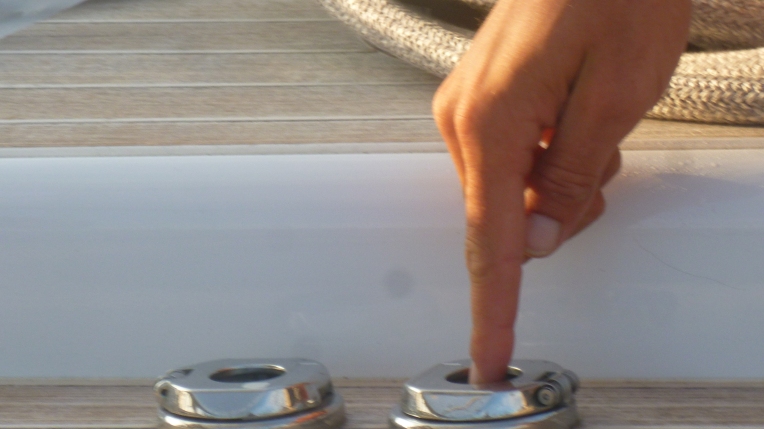
This is how you trim the sails on board Berenice, press on the button and the hydraulic does the rest… careful you might hurt the tip of your fingers…
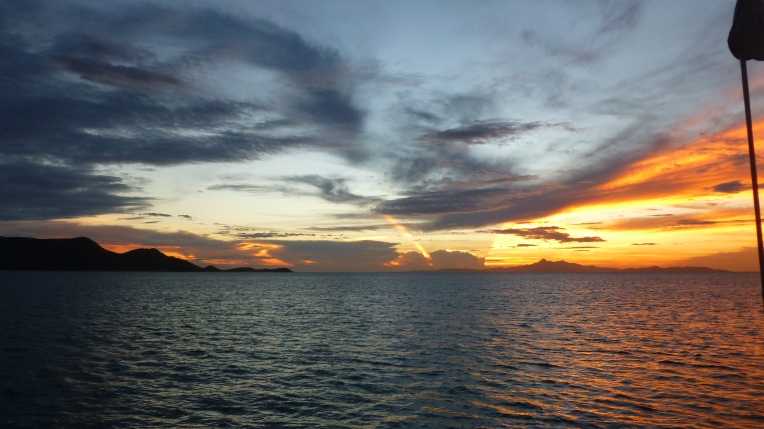
Sunset in Isla Margarita, Venezuela
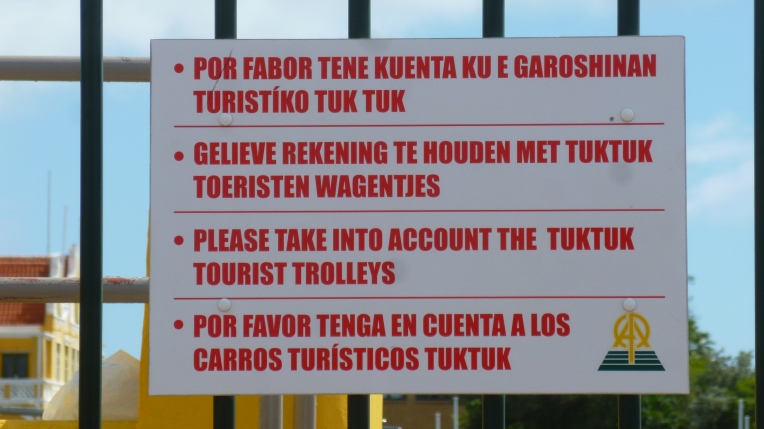
In Papiamento, a trolley is a “tuk tuk”… (notice board in Willemstad)
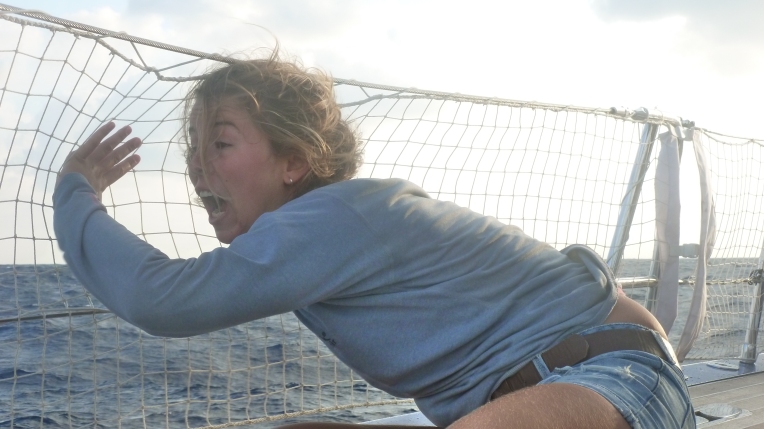
Rocio trying to escape after a too long day of work down below
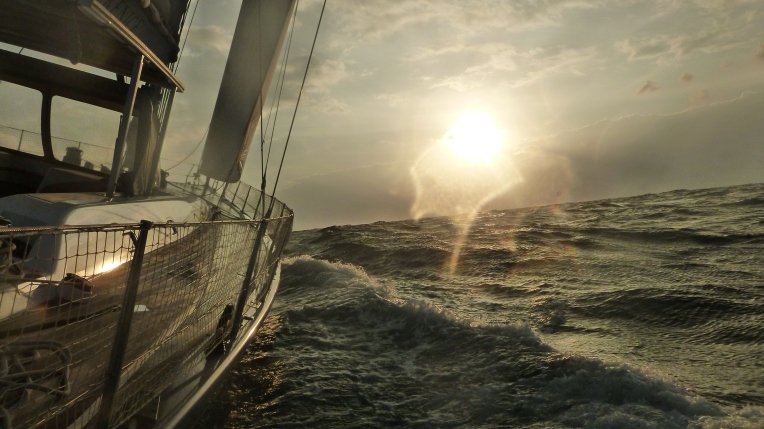
Berenice upwind early in the morning in the Caribbean Sea
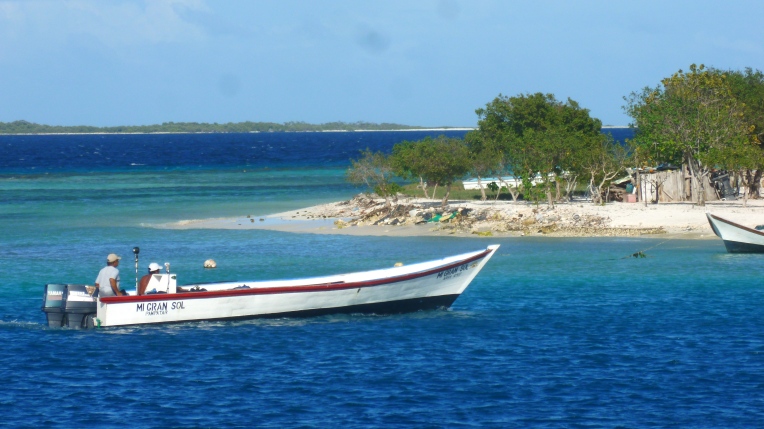
Los Roques, Venezuela
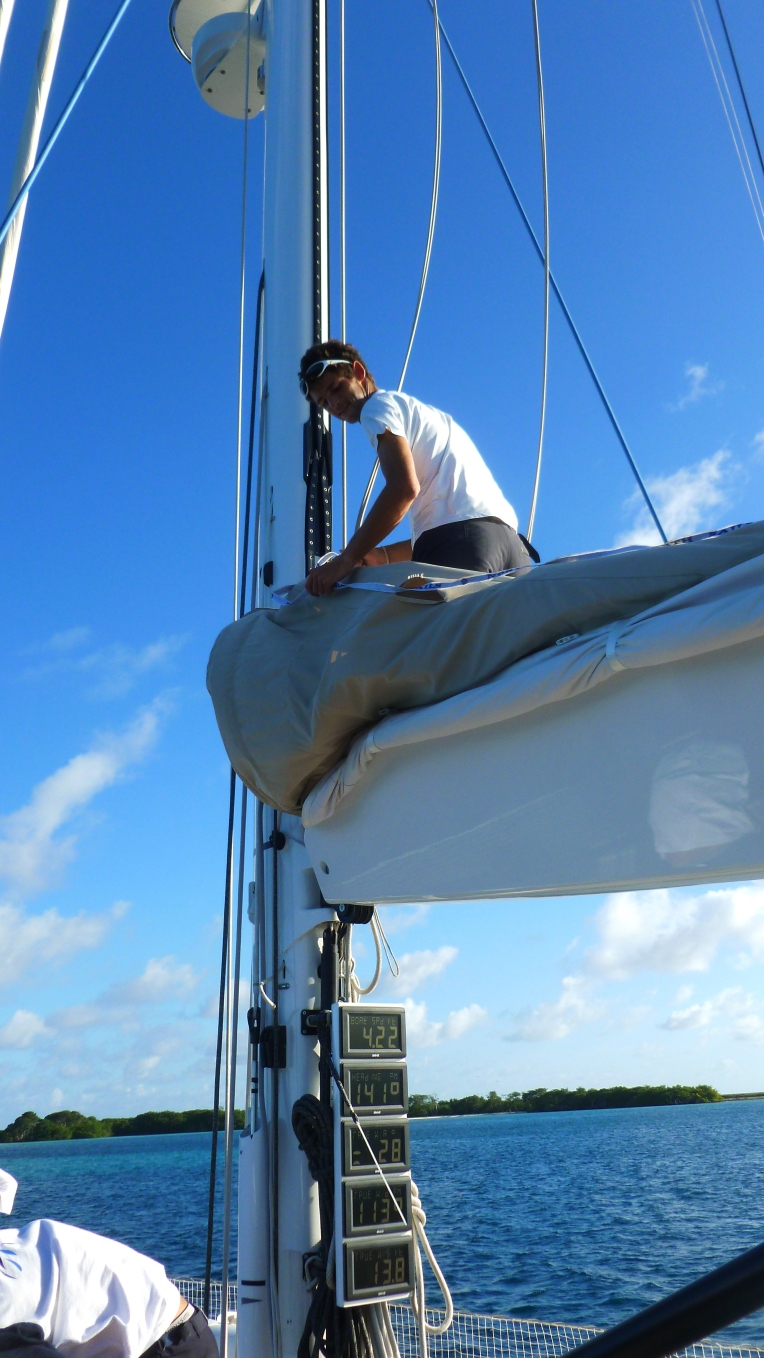
Gaspar preparing the mainsail to hoist in las Aves
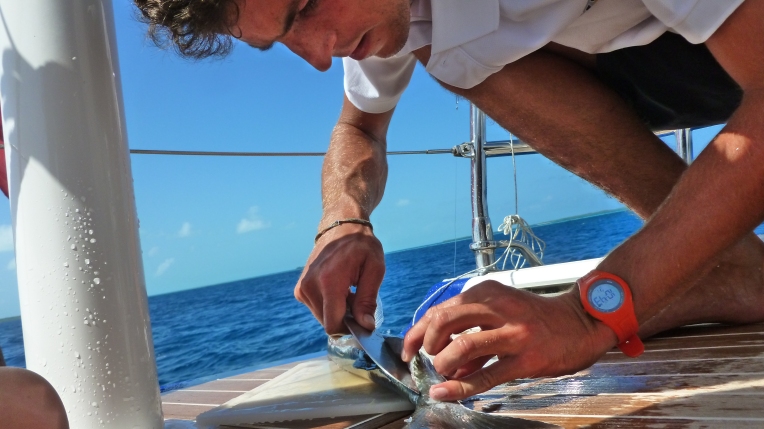
Gaspar cutting a baracuda freshly fished in los Roques, he did not have the time to pass away that he was fried already…
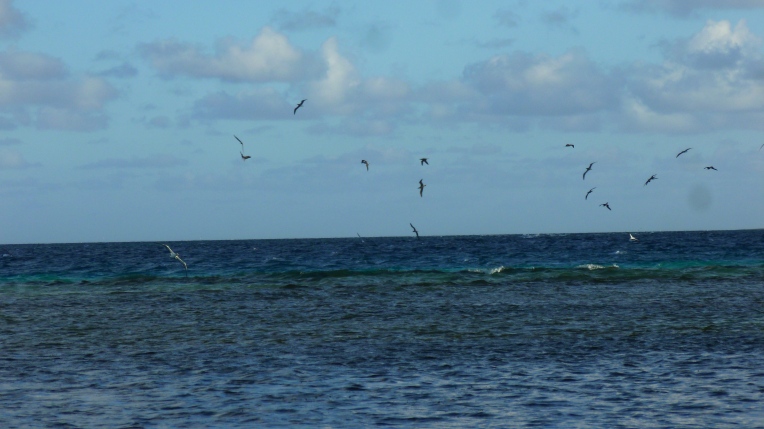
Birds fishing in las Aves
